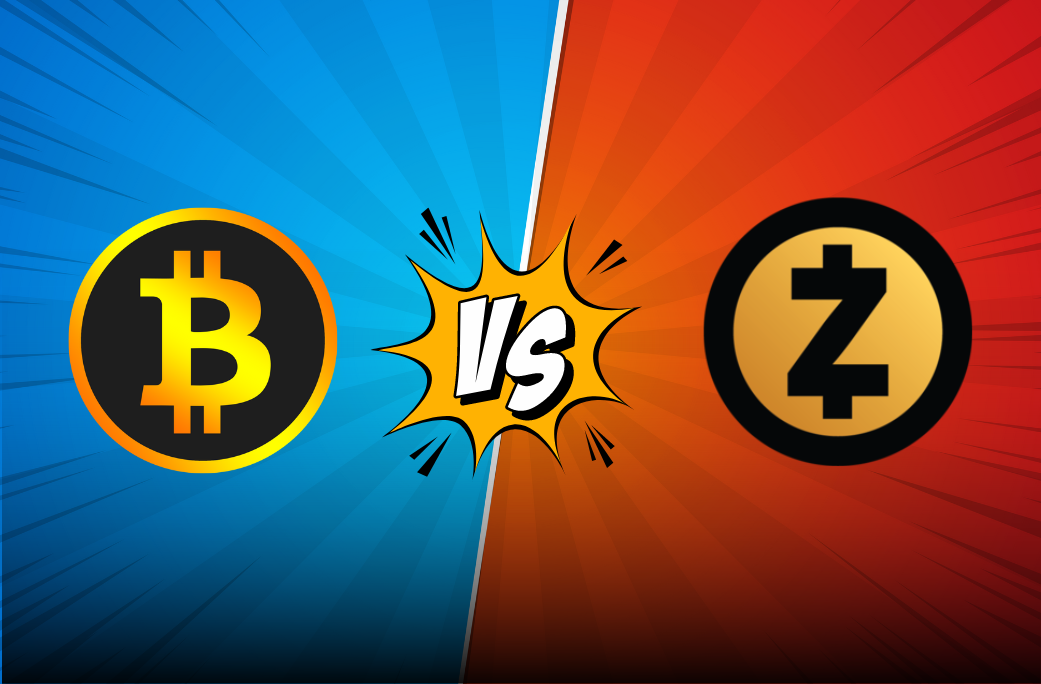The widespread adoption of cryptocurrencies has heralded a transformative era in finance, yet it has concurrently accentuated the paramount importance of transactional privacy. Within this article, we embark on a comprehensive exploration of the intricate realm of cryptocurrency privacy, with a primary emphasis on juxtaposing the attributes of two prominent digital currencies: Bitcoin and Zcash. While getting insights on privacy protocols, spare some time to learn basics of investing in the market as well. Visit https://trader-ai.io/ and learn investing right from zero!
Understanding Bitcoin’s Transparency
Bitcoin, the pioneer of cryptocurrencies, operates on a transparent ledger known as the blockchain. While the blockchain provides security and immutability, it also makes all transaction details publicly accessible. Each transaction on the Bitcoin network is recorded, and the sender’s and receiver’s addresses are visible. However, these addresses are pseudonymous, which means they are not directly tied to personal identities.
Zcash: The Privacy-Centric Cryptocurrency
Zcash was created with a primary focus on enhancing privacy in cryptocurrency transactions. It achieves this goal through the use of a cutting-edge technology called zk-SNARKs (Zero-Knowledge Succinct Non-Interactive Arguments of Knowledge). Unlike Bitcoin, where transaction details are visible to anyone, Zcash transactions can be fully shielded. zk-SNARKs allow Zcash users to prove the validity of a transaction without revealing any transaction details.
The privacy features of Zcash offer several advantages, such as enhanced fungibility, increased anonymity, and protection against transaction tracing.
Bitcoin’s Privacy Challenges
While Bitcoin is often considered a pseudonymous cryptocurrency, it faces significant challenges when it comes to privacy. The pseudonymity provided by Bitcoin addresses can be compromised if any entity associates an address with a real-world identity. Furthermore, the transparent nature of the Bitcoin blockchain makes it possible for anyone to analyze transaction patterns and potentially de-anonymize users.
To address these privacy issues, Bitcoin users often turn to techniques like CoinJoin and Bitcoin mixers, which combine multiple transactions to obscure the source of funds. While these methods can enhance privacy, they are not as robust as the privacy features offered by Zcash.
Zcash vs Bitcoin: Privacy Comparison
Let’s delve deeper into the comparison between Zcash and Bitcoin in terms of privacy:
- Privacy by Default: Zcash offers a higher degree of privacy by default, as users can opt for fully shielded transactions. In contrast, Bitcoin transactions are transparent by default, and users must take extra steps to enhance their privacy.
- Transaction Anonymity: Zcash transactions are nearly completely anonymous, thanks to zk-SNARKs. Bitcoin, on the other hand, relies on pseudonymity and requires additional privacy-enhancing techniques.
- Fungibility: Zcash’s privacy features contribute to better fungibility, meaning that all coins are treated equally, regardless of their transaction history. Bitcoin’s transparency can lead to some coins being labeled as “tainted” due to their involvement in illicit activities.
- Privacy Trade-offs: While Zcash excels in privacy, it’s essential to acknowledge that there are trade-offs. Shielded transactions in Zcash are computationally intensive, potentially leading to higher transaction fees and resource requirements compared to Bitcoin.
Regulatory and Ethical Considerations
The rise of privacy-centric cryptocurrencies has raised concerns among regulators and policymakers. Governments worry that such cryptocurrencies could be used for illegal activities, including money laundering and tax evasion. As a result, they have imposed stricter regulations on privacy coins like Zcash.
On the ethical front, there is an ongoing debate about the balance between privacy and transparency. Privacy advocates argue that financial privacy is a fundamental right, while authorities emphasize the importance of transparency for law enforcement and tax compliance.
Recent regulatory developments have put pressure on privacy coins to adapt and find solutions that satisfy both privacy-conscious users and regulatory requirements.
The Future of Privacy in Cryptocurrencies
Looking ahead, the future of privacy in cryptocurrencies remains uncertain but promising. As the crypto space evolves, we can expect advancements in privacy technologies that strike a balance between individual privacy and regulatory compliance. Projects like Zcash will continue to innovate, and Bitcoin may explore more robust privacy solutions.
Privacy coins will play a pivotal role in the broader adoption of cryptocurrencies, as they address the privacy concerns that traditional financial systems often overlook.
Conclusion
In conclusion, the comparison between Zcash and Bitcoin highlights the crucial role of privacy in the cryptocurrency space. While Bitcoin’s transparency offers pseudonymity, Zcash’s privacy-centric approach, using zk-SNARKs, grants enhanced anonymity and fungibility. Both cryptocurrencies have their merits, and the choice depends on individual preferences and needs. However, it’s clear that privacy coins like Zcash play a vital role in addressing privacy concerns in an increasingly digitized financial world. As the crypto landscape evolves, users should remain vigilant about regulatory changes and technological advancements, advocating for a balance between individual privacy and regulatory compliance in this transformative domain.
